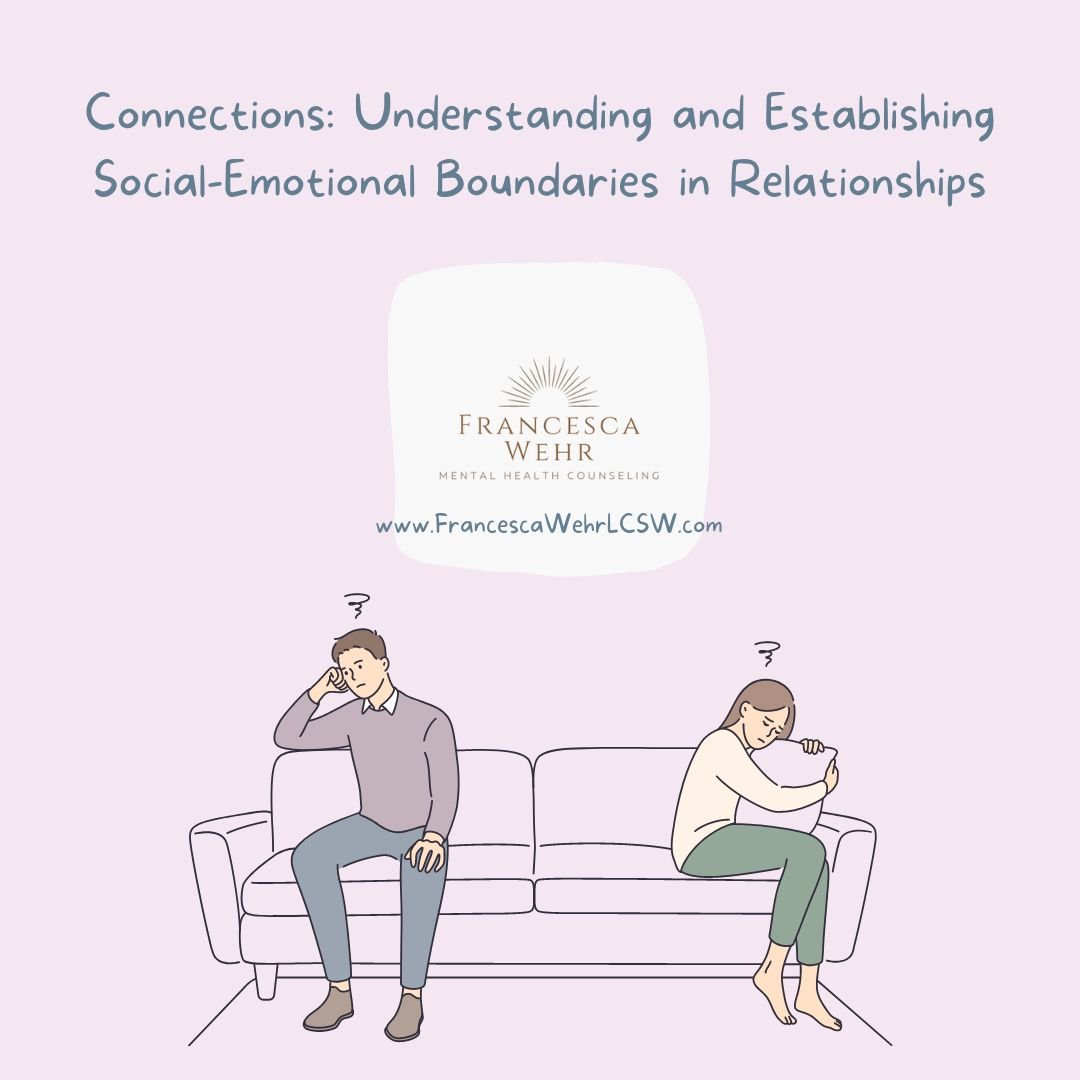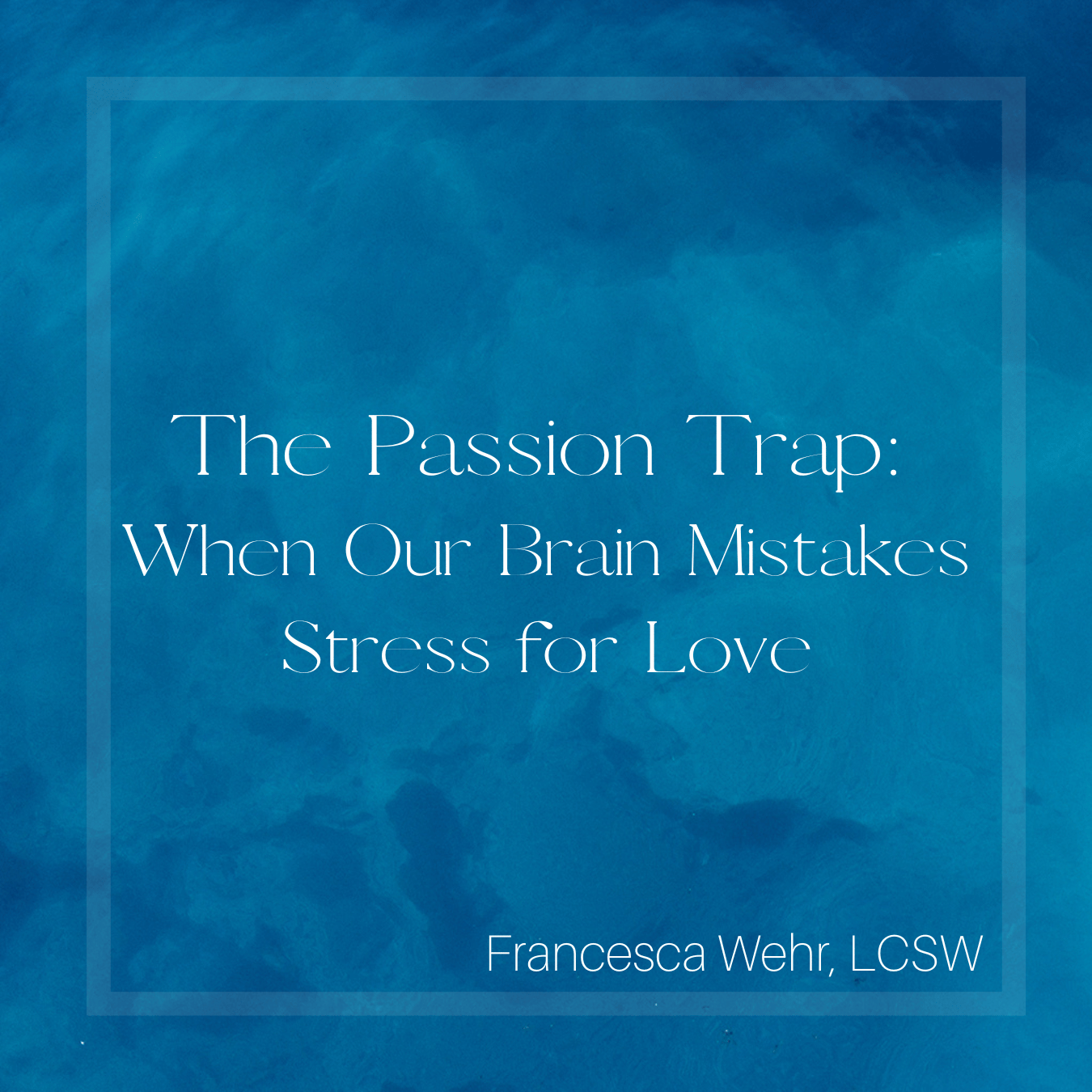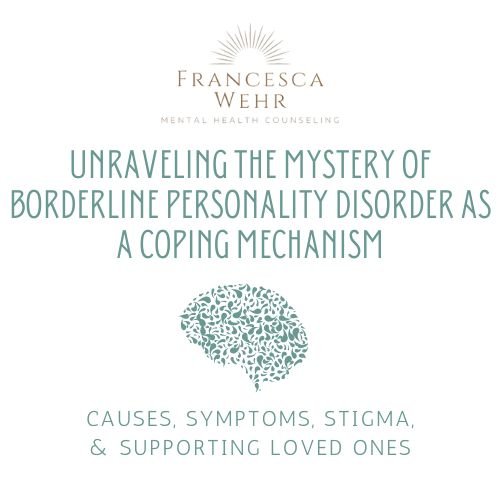
Entangled Emotions: Enmeshment, Unhealthy Family Dynamics, and the Impact on Adult Well-Being
Pathways to Wellness: Insights from Francesca Wehr, LCSW Mental Health Counseling explores the concept of enmeshment, its role in unhealthy family dynamics, and the lasting impact it can have on adults. By understanding enmeshment and its consequences, we can work towards healing and establishing healthier relationship patterns.

Abusive Relationships, Gaslighting, and the Cycle of Violence: Warning Signs and Pathways to Wellness
Pathways to Wellness: Insights from Francesca Wehr, LCSW Mental Health Counseling discusses the red flags and warning signs of toxic and abusive relationships, the cycle of violence, how to leave abusive relationships safely, and the resources available for those affected by domestic abuse. Recognizing and addressing these issues can empower individuals to seek help and break free from unhealthy relationships.

Building Healthy Connections: Understanding and Establishing Social-Emotional Boundaries in Relationships
Pathways to Wellness: Insights from Francesca Wehr, LCSW Mental Health Counseling explores the concept of social-emotional boundaries, the different types of boundaries, and the importance of healthy boundaries in all types of relationships. By understanding and establishing strong boundaries, we can foster fulfilling and respectful connections with others.

Navigating the Ties That Bind: Understanding Attachment Styles and Fostering Healthy Relationships
Pathways to Wellness: Insights from Francesca Wehr, LCSW Mental Health Counseling explores the concept of attachment styles, their impact on our relationships, and strategies for fostering healthier attachment patterns. Understanding your attachment style and learning how to cultivate secure attachments can lead to stronger, more fulfilling relationships.

Understanding Parentification: Its Impact and Pathways to Healing
Parentification is a complex and often under-discussed phenomenon that can have lasting effects on individuals throughout their lives. Pathways to Wellness: Insights from Francesca Wehr, LCSW explores the concept of parentification, its impact on adults, and how mental health professionals can help individuals heal from its consequences.

The Passion Trap: When Our Brain Mistakes Stress for Love
Passionate love can be exhilarating, consuming, and intense, but what happens when our brain mistakes stress for passion in a romantic relationship? The complex interplay between our emotions, stress response, and brain chemistry can sometimes create a confusing and potentially unhealthy dynamic. In this blog post, we will explore the science behind this phenomenon and discuss the importance of recognizing and addressing the "passion trap" in our relationships.

Unraveling the Mystery of Borderline Personality Disorder as a Coping Mechanism: Causes, Symptoms, Stigma, & Supporting Loved Ones
Borderline Personality Disorder (BPD) is a complex and often misunderstood mental health condition. It affects approximately 1.6% of the population, but despite its prevalence, there remains a considerable stigma attached to the diagnosis. This can lead to further isolation and distress for individuals living with BPD and their loved ones. Francesca Wehr, LCSW Mental Health Counseling delves into the causes of BPD, addresses the stigma surrounding the disorder, and discusses ways to support loved ones who are navigating the challenges associated with BPD.

Healing the Past: Understanding and Addressing Generational Trauma
Pathways to Wellness: Insights from Francesca Wehr, LCSW explores the concept of generational trauma, the ways it can impact individuals and families, and the importance of recognizing and addressing it in order to break the cycle and promote healing.

Healing Old Wounds: Understanding Repetition Compulsion in Relationships
In today's blog, we will discuss the concept of repetition compulsion, a psychological phenomenon where individuals unconsciously seek out relationships that mirror past traumas or experiences in an attempt to heal old wounds. Recognizing and addressing repetition compulsion can lead to healthier, more fulfilling relationships and improved mental well-being.




